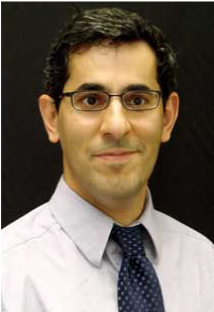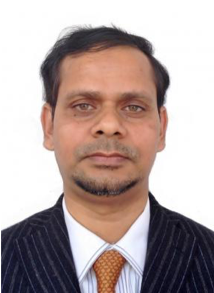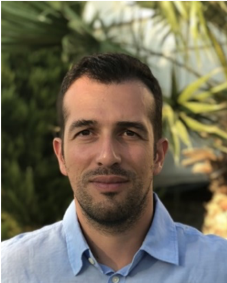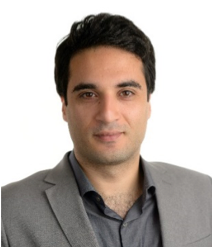SICE 2020 in Chiang Mai to be held ONLINE. Please see the
announcement.
If you would like to attend the Workshop or the Tutorial, please complete your application and payment by
15:00 (Thailand Time) on Thursday 17th September 2020. You can make your application and payment via the online registration system operated by JTB (Japan Tourist Bureau):
https://amarys-jtb.jp/sice2020/.
Within a few days after completing the application procedure, you will receive a survey email that will ask you to confirm which one (the Workshop or the Tutorial) you would like to attend.
Workshop:
Emerging Control of Vehicular Traffic for Improving Sustainability and Energy Efficiency
Main Organizer
- Md Abdus Samad Kamal, Gunma University, Japan
Statement of objectives
The workshop addresses the growing public expectations in connected automated vehicles for traffic congestion alleviation, sustainability, and reduction of the environmental impacts in road transportation. The workshop objectives are to provide an overview of the state-of-the-art in the vehicle and traffic control methods and introduce emerging innovative solutions through the fusion of information, computing and control technologies aiming at a revolutionary change in the next generation road transportation systems. Particularly, model predictive control of connected-automated vehicles and traffic signaling systems, the optimal guidance for energy-efficient driving and routing of the vehicles, and hierarchical control of congestion in a large traffic network will be addressed by a group of leading researchers from Japan, US, France, and Australia. The workshop will be held online using zoom and the participants around the world will have an opportunity to share knowledge and discuss directly with the speakers in the virtual platform.
Keywords: Connected automated vehicles, Model Predictive Control, Cooperative Autonomous Driving, Intelligent Transportation Systems.
Intended audience
- Researchers in the area of automotive control, traffic control, automated driving, intelligent transportation, smart city, communication and edge/cloud computing technologies, and software.
- Academician and students working on model predictive control, network control, operation research, optimization.
- Students in systems and control who are looking for challenging research topics with practical applications.
Speakers
Ardalan Vahidi, Clemson University, USA
 Dr. Ardalan Vahidi is a Professor of Mechanical Engineering at Clemson University, South Carolina. He received his Ph.D. in mechanical engineering from the University of Michigan, Ann Arbor, in 2005, M.Sc. in transportation safety from George Washington University, Washington, DC, in 2002, and B.S. and M.Sc. from Sharif University, Tehran in 1996 and 1998, respectively. In 2012–2013 he was a Visiting Scholar at the University of California, Berkeley. He has also held scientific visiting positions at BMW Technology Office in California, and at IFP Energies Nouvelles, in France. His research is at the intersection of energy, vehicular systems, and automatic control. His recent publications span topics in alternative vehicle powertrains, intelligent transportation systems, and connected and autonomous vehicle technologies.
Dr. Ardalan Vahidi is a Professor of Mechanical Engineering at Clemson University, South Carolina. He received his Ph.D. in mechanical engineering from the University of Michigan, Ann Arbor, in 2005, M.Sc. in transportation safety from George Washington University, Washington, DC, in 2002, and B.S. and M.Sc. from Sharif University, Tehran in 1996 and 1998, respectively. In 2012–2013 he was a Visiting Scholar at the University of California, Berkeley. He has also held scientific visiting positions at BMW Technology Office in California, and at IFP Energies Nouvelles, in France. His research is at the intersection of energy, vehicular systems, and automatic control. His recent publications span topics in alternative vehicle powertrains, intelligent transportation systems, and connected and autonomous vehicle technologies.
Md Abdus Samad Kamal, Gunma University, Japan
 Dr. Md Abdus Samad Kamal received B.Sc.Eng. degree from Khulna University of Engineering and Technology (KUET), Bangladesh, in 1997 and the Master and Ph.D. degrees from Kyushu University, Japan, in 2003 and 2006, respectively. He was a Lecturer with KUET from 1997 to 2000, a Researcher with Kyushu University in 2006, and 2008 to 2011, an Assistant Professor with International Islamic University Malaysia, Malaysia from 2006 to 2008, a Researcher with The University of Tokyo, Japan from 2011 to 2014. He worked as a Visiting Researcher with Toyota Central R & D Labs., Inc., Japan, from 2014 to 2016. He was a Senior Lecturer in the School of Engineering, Monash University Malaysia from 2016 to 2019. Currently, he is an Associate Professor in the Graduate School of Science and Technology, Gunma University, Japan. His research interests include intelligent transportation systems, connected and automated vehicles, and the applications of model predictive control. Dr. Kamal is a member of the Society of Instrument and Control Engineers (SICE), a Senior Member of Institute of Electrical and Electronic Engineers and a Chartered Engineer of Institution of Engineering and Technology (IET).
Dr. Md Abdus Samad Kamal received B.Sc.Eng. degree from Khulna University of Engineering and Technology (KUET), Bangladesh, in 1997 and the Master and Ph.D. degrees from Kyushu University, Japan, in 2003 and 2006, respectively. He was a Lecturer with KUET from 1997 to 2000, a Researcher with Kyushu University in 2006, and 2008 to 2011, an Assistant Professor with International Islamic University Malaysia, Malaysia from 2006 to 2008, a Researcher with The University of Tokyo, Japan from 2011 to 2014. He worked as a Visiting Researcher with Toyota Central R & D Labs., Inc., Japan, from 2014 to 2016. He was a Senior Lecturer in the School of Engineering, Monash University Malaysia from 2016 to 2019. Currently, he is an Associate Professor in the Graduate School of Science and Technology, Gunma University, Japan. His research interests include intelligent transportation systems, connected and automated vehicles, and the applications of model predictive control. Dr. Kamal is a member of the Society of Instrument and Control Engineers (SICE), a Senior Member of Institute of Electrical and Electronic Engineers and a Chartered Engineer of Institution of Engineering and Technology (IET).
Giovanni De Nunzio, IFP Energies Nouvelles, France
 Dr. Giovanni De Nunzio received the B.Sc. and M.Sc. degrees in Automation Engineering from the University of L’Aquila, Italy, in 2007 and 2010. He was a visiting researcher in the Mechanical Engineering Department at University of California, Berkeley, USA, in 2014. He received the Ph.D. in Automatic Control from the Grenoble Institute of Technology, France, in 2015. He is currently a research scientist in the Control, Signal and System Department at IFP Energies nouvelles, France. His research activities focus on modeling, control, and simulation of traffic and transportation systems, vehicle powertrain modeling, advanced driver-assistance systems, optimization, and graph theory.
Dr. Giovanni De Nunzio received the B.Sc. and M.Sc. degrees in Automation Engineering from the University of L’Aquila, Italy, in 2007 and 2010. He was a visiting researcher in the Mechanical Engineering Department at University of California, Berkeley, USA, in 2014. He received the Ph.D. in Automatic Control from the Grenoble Institute of Technology, France, in 2015. He is currently a research scientist in the Control, Signal and System Department at IFP Energies nouvelles, France. His research activities focus on modeling, control, and simulation of traffic and transportation systems, vehicle powertrain modeling, advanced driver-assistance systems, optimization, and graph theory.
Mohsen Ramezani, The University of Sydney, Australia
 Dr. Mohsen Ramezani received the B.Sc. and M.Sc. degrees in electrical engineering (control systems) from the University of Tehran, Iran, in 2008 and 2010, respectively, and the Ph.D. degree in Transportation from École Polytechnique Fédérale de Lausanne (EPFL), Switzerland. Prior to joining the School of Civil Engineering at the University of Sydney as a Lecture (Assistant Professor) in Transport Engineering in 2016, he was a Lecturer at the Institute of Transport Studies at Monash University, Melbourne, Australia (2015-2016).
Dr. Mohsen Ramezani received the B.Sc. and M.Sc. degrees in electrical engineering (control systems) from the University of Tehran, Iran, in 2008 and 2010, respectively, and the Ph.D. degree in Transportation from École Polytechnique Fédérale de Lausanne (EPFL), Switzerland. Prior to joining the School of Civil Engineering at the University of Sydney as a Lecture (Assistant Professor) in Transport Engineering in 2016, he was a Lecturer at the Institute of Transport Studies at Monash University, Melbourne, Australia (2015-2016).
Program
10:00 - 10:10 ![]() |
Opening of the Workshop
Speaker: Md Abdus Samad Kamal |
| 10:10 - 11:00 |
Talk 1: Anticipative Guidance of Connected and Autonomous Cars for Energy Efficiency
Speaker: Ardalan Vahidi, Department of Mechanical Engineering, Clemson University, USA. Web: https://cecas.clemson.edu/~avahidi
Outline: Connected and automated vehicles (CAV) are marketed for their increased safety, driving comfort, and time saving potential. With much easier access to information, increased processing power, and precision control, they also offer unprecedented opportunities for energy efficient driving. This talk highlights the energy saving potential of connected and automated vehicles based on first principles of motion, optimal control theory, and practical examples from our previous and ongoing research. Connectivity to other vehicles and infrastructure allows better anticipation of upcoming events, such as hills, curves, slow traffic, state of traffic signals, and movement of neighboring vehicles. Automation allows vehicles to adjust their motion more precisely in anticipation of upcoming events, and save energy. Opportunities for cooperative driving could further increase energy efficiency of a group of vehicles by allowing them to move in a coordinated manner. Energy efficient motion of connected and automated vehicles could have a harmonizing effect on mixed traffic, leading to additional energy savings for neighboring vehicles.
We present analytical and experimental results from a US Department of Energy funded project in which we are exploring the impact of anticipative vehicle guidance on energy efficiency of CAVs and surrounding traffic. The benefits are shown in simulated scenarios and, also in a novel vehicle-in-the-loop experiment on a test track.
|
| 11:10 - 12:00 |
Talk 2: Smart-Driving in Partially Connected Vehicle Environment using Nonlinear Model Predictive Control
Speaker: Md Abdus Samad Kamal, Division of Mechanical Science and Technology, Gunma University, Japan. Web: https://www.mst.st.gunma-u.ac.jp/kamal/
Outline: Smart-driving indicates the efficient driving behavior that also influences other vehicles to enhance their driving performances. Such behavior can be realized through fully traffic anticipation that enhances the driving intelligence and strengthens the ability to take early vehicle control action, e.g., lane change and speed adjustment, in a dynamically varying traffic environment. At first, the concept of smart-driving in a fully connected vehicle environment using a fast nonlinear model predictive control (NMPC) will be introduced in the case of single lane and multi-lane roads.
Next, the concept of road-speed profile (RSP), the virtual traffic speeds along the road as a continuous function of the longitudinal position, will be introduced, which will be followed by estimation and evaluation of the RSP using NGSim traffic data. Finally, an enhanced smart-driving scheme in the context of multi-lane traffic will be formulated by incorporating information of the RSP in the control framework. The scheme aims to improve the perception of the preceding traffic and enable cooperative driving on a multi-lane road. Finally, evaluation using real driving data and in AIMSUN microscopic traffic simulator will be presented. |
| 12:00 - 13:00 |
Lunch |
| 13:00 - 13:50 |
Talk 3: The Eco-Routing Problem: Challenges and Solution Strategies for Electrified Vehicles
Speaker: Giovanni De Nunzio, Control, Signal and System Department, IFP Energies Nouvelles, France
Outline: E-mobility has been identified as an important means to reduce energy consumption and emissions of transportation. In an effort to comply with more and more stringent decarbonization measures, automakers are planning to significantly reduce the sales of vehicles solely powered by internal combustion engines (ICEs), and promote vehicle electrification. However, at least today, the main disadvantage of EVs and rechargeable HEVs is a relatively short range compared to cars with internal combustion engines. At route planning level, eco-routing is the strategy that makes use of topological and traffic information about the road network to compute an optimal route in terms of energy consumption. Such a strategy can be effectively used to reduce range anxiety and extend the driving range especially of electrified vehicles.
However, eco-routing for electrified vehicles implies two major difficulties in the design both at modeling and algorithmic level. The first challenge lies in the accuracy of the energy consumption model, whose role is to estimate the energy cost on each elementary road segment. Energy cost of each segment of the road network depends on vehicle parameters and powertrain, but also on road slope and more importantly on the vehicle speed profile, which needs to be predicted. The second challenge in the eco-routing for electrified vehicles consists in imposing constraints at routing level over the entire route. Such constraints typically aim to enforce problem feasibility, by imposing that the battery state of charge (SOC) stays within the physical limits at any time along the route, or additional problem-related desired behaviors, such as a maximum travel time or a desired final SOC at the end of the trip. This problem is typically formulated either as an integer programming problem, or as a resource-constrained shortest-path problem (RCSPP) on graphs, which are both known to be NP-hard problems.
In this talk, both challenges will be addressed. Firstly, modeling methods to correctly predict the driving behavior and the speed profiles of vehicles will be discussed, as well as methods to estimate the energy and fuel consumption of electrified vehicles. Secondly, different optimization problem formulations and algorithmic solutions of increasing degree of complexity will be described to solve the eco-routing problem for EVs and HEVs. |
| 14:00 -14:50 |
Talk 4: Hierarchical Traffic Congestion Control in Urban Networks
Speaker: Mohsen Ramezani, Transport Engineering, School of Civil Engineering, The University of Sydney, Australia
Outline: Accurate monitoring and efficient control of transportation systems remain a big challenge, due to the complexity and extent of transportation networks, unpredictability of travelers choices (in terms of route, departure time, and mode of transport), and the uncertainty in their reactions to the control. Over decades, control strategies based on disaggregated traffic flow models, which model behavior of every vehicle, have been proposed and applied for isolated intersections and arterials. However, large-scale network control schemes based on microscopic modeling require a tremendous amount of data and thus are computationally intractable. Instead, macroscopic models that only describe the aggregated behavior of traffic networks, and relying on less information, are well-suited for large-scale transportation system analysis. An instance of such models is the macroscopic fundamental diagram (MFD) that aims at simplifying the micro-modeling of urban networks where the collective traffic flow dynamics of subnetworks capture the main characteristics of traffic congestion. This talk will discuss network-level control of urban traffic utilizing the MFD modeling. |
| 15:00 - 15:50 |
Talk 5: Cooperative Control of Connected-Automated Vehicles at Intersections Using Nonlinear Model Predictive Control
Speaker: Md Abdus Samad Kamal, Division of Mechanical Science and Technology, Gunma University, Japan. Web: https://www.mst.st.gunma-u.ac.jp/kamal/
Outline: Anticipative optimal driving of vehicles, considering the microscopic dynamics of the preceding traffic and signal timings at the intersection, can bring great improvement in the traffic flows, fuel consumption, and emission of CO2 gas. For automated driving vehicles and traffic management systems, such anticipative decisions can be realized using nonlinear model predictive control (NMPC) since the dynamics of individual vehicles and their interactions are highly nonlinear. In this workshop, we would like to present NMPC solutions for two different traffic scenarios.
Firstly, we present a coordination scheme for fully connected and automated vehicles at an intersection without using any traffic lights. All vehicles approaching the intersection are globally coordinated to realize smooth flows at the intersection. The optimal trajectories of the vehicles are computed in an NMPC framework based on the avoidance of their cross-collision risks around the intersection under relevant constraints and preferences.
Secondly, we addressed a mixed manual-automated traffic scenario at an isolated intersection where automated vehicles need to be controlled efficiently considering the dynamics of manually driven vehicles and traffic signal timings. The traffic signals are optimized in a receding horizon control framework that aims at minimizing the total crossing time of all vehicles, considering their dynamical states. Using broadcasted optimal signal changing times, the automated vehicles tune their speed in order to cross the intersection with minimum stop-delay. The scheme has been evaluated with various penetration of automated vehicles in a microscopic traffic simulator. |